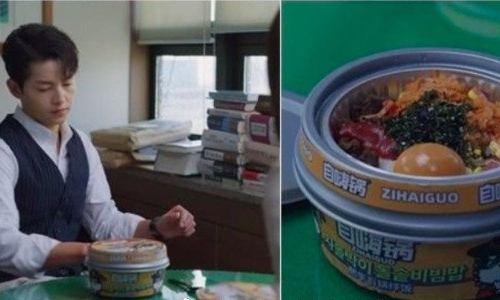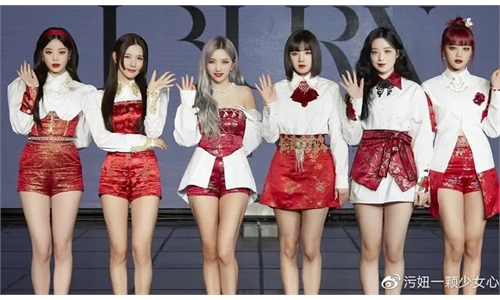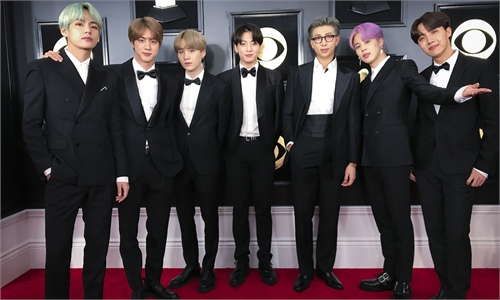ARTS / CULTURE & LEISURE
South Korean drama stirs up criticism with product placement for Chinese brand rice dish

product placement for a Chinese brand Korean-style instant rice meal Zi Hai Guo. Photo: Weibo
A recent episode of the hot South Korean TV series Vincenzo has captured both Chinese and South Korean netizens' attention, not because of its intriguing narrative or its attractive leading actor Song Joong-ki, but rather due to its choice to include a product placement for a Chinese brand Korean-style instant rice meal.
In a scene from the recent episode, lead actress Hong Cha-young hands Song, who plays the titular character Vincenzo Cassono, a bowl of instant beef stirred rice dish, which is similar to bibimbap, a Korean rice dish traditionally served in a stone bowl, from the Chinese brand Zi Hai Guo, one of China's most famous companies that produces self-heating food. The actor also added a line says that "don't forget to eat something nice while watching something interesting."
The seemly simple scene was immediately criticized by South Korean netizens soon after the release of the episode. Some seemed focused on the meal's packaging, claiming they were repulsed by the Chinese characters printed on it, while others busied themselves emphasizing that the "stirred rice dish" is a Korean dish. And some others mentioned that they do not want to see South Korean stars eating food to promote Chinese brands on TV.
However, the truth is the instant meal was nothing more than a product placement for Zi Hai Guo. The Chinese food company has an advertising agreement with Vincenzo, which stipulated the instant meal should appear a total of four times in the series and be eaten by the leads at least twice.
"They really should feel lucky that Zi Hai Guo did not feature its Sichuan flavor hotpot on the show. If it did, they wouldn't even have a single chance to claim it has anything to do with their country," wrote one netizen on China's Twitter-like Sina Weibo.
Indeed, being considerate and culturally sensitive, Zi Hai Guo's instant stirred rice dish is not a usual product of the company, but a new product to test the waters of the South Korean market jointly launched by the brand and a South Korean food company specializing in fermented products. The company also translated the labels on the packaging into Korean for local consumers, a fact that seems to have been deliberately ignored by South Korean netizens.
Korean netizens' reactions were also commented on by people on China's Sina Weibo. Some said they were also repulsed for different reasons, "they think that everything is exclusively theirs."
Some other Chinese netizens viewed the issue more rationally, saying that cross-cultural product placement has become normal and is a good way to create fresh opportunities.
"Isn't it a good thing for them? New capital and collaborations to renew their struggling TV drama market as well as allow production costs to be reduced because of the ad revenue," said a netizen.
"I see it as a cultural exchange. Since some of us do watch South Korean food livestreams, we never made such a big fuss unless we got insulted by you, like what livestreamer Hamzy did," said another.



